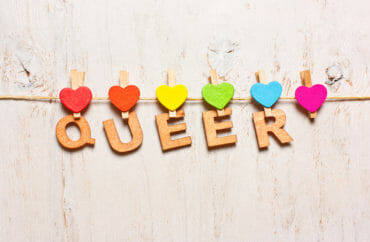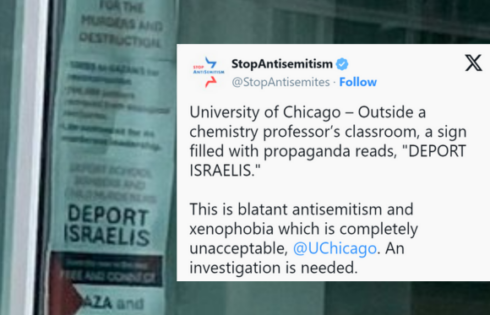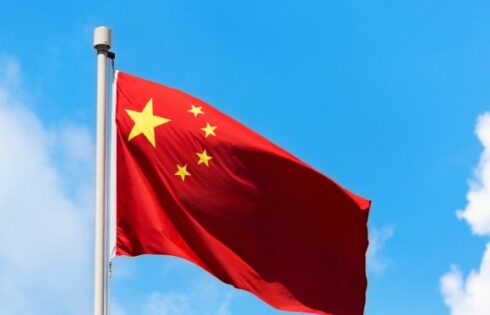
‘Homogenous, cis-heteronormative community’ makes nuclear policy ‘vulnerable’
A pair of researchers opined recently in the Bulletin of the Atomic Scientists that queer ideology as it relates to nuclear issues isn’t about “pushing a social agenda,” but rather creating more “effective policy.”
According to the Vienna Center for Disarmament and Non-Proliferation’s Louis Reitmann and Sneha Nair of the Stimson Center, “governments cannot afford to lose out on the human capital and innovation potential of queer people” when discussing the “high stakes” topic of nukes.
These allegedly come from LGBTQ folks’ “life experiences” such as empathy, perseverance and being able to “navigate being different.”
 Reitmann (pictured) and Nair claim that the “homogenous, cis-heteronormative community of practitioners” makes nuclear policy “vulnerable” by leaving out LGBTQ people and other minorities.
Reitmann (pictured) and Nair claim that the “homogenous, cis-heteronormative community of practitioners” makes nuclear policy “vulnerable” by leaving out LGBTQ people and other minorities.
“Cis-heteronormativity […] creates the idea that being heterosexual and cisgender is normal and natural, whereas being queer or trans is a deviation,” they say.
The duo also claim that queer theory, like feminist theory, “shines a light on the harm done by nuclear weapons” by focusing on individuals’ “rights and well-being” over national security.
MORE: Scholars argue field of nuclear science is racist
Queer theory asks: Who created these ideas? How are they being upheld? Whose interests do they serve? And whose experiences are being excluded?
Queer theory also identifies how the nuclear weapons discourse is gendered: Nuclear deterrence is associated with “rationality” and “security,” while disarmament and justice for nuclear weapon victims are coded as “emotion” and a lack of understanding of the “real” mechanics of security. …
Queer theory is also about rejecting binary choices and zero-sum thinking, such as the tenet that nuclear deterrence creates security and disarmament creates vulnerability. It identifies the assumptions and interests these ideas are built on—and imagines alternatives that serve a broader range of interests, including those of the invisible and resource-stripped.
Indeed, queer theory helps us not only see the bad of a world with nuclear weapons, but also imagine the good of a world without them. It envisions using the resources freed up by nuclear disarmament to build structures that tangibly increase people’s safety and well-being through healthcare, social housing, etc. In this scenario, the more than $100 billion that nuclear-armed states spend on nuclear weapons every year could be used to address the climate crisis, which could kill up to 83 million people by 2100.
Last year, the Carnegie Corporation report titled “Finding Feminism in Nuclear Policy” said nuclear policy “must focus on rebalancing power inequalities, eliminating systems of oppression, and actively supporting the needs of the most marginalised in society” as well as “counter[ing] the gendered and racialised concepts of who can make ‘good’ policy and which countries are ‘rational and responsible’ enough to possess nuclear weapons.”
Also in 2022, Princeton University offered the course “Nuclear Princeton: An Indigenous Approach to Science and the Environment” which examined nuclear science in relation to “Indigenous perspectives on land, sovereignty, and indigeneity.” It asked “What lessons can we learn from the University’s past to conduct morally sound research and generate culturally inclusive knowledge?”
MORE: Federal science research has been infected with DEI ideology: top theoretical physicist
IMAGE: Louis Reitmann/Twitter; Alexmia/Shutterstock.com
Like The College Fix on Facebook / Follow us on Twitter





Please join the conversation about our stories on Facebook, Twitter, Instagram, Reddit, MeWe, Rumble, Gab, Minds and Gettr.